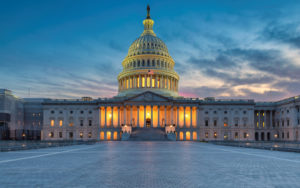Revisiting the Constitutionality of Independent Agencies
The Supreme Court has destabilized principles on federal agencies’ structures and for-cause removal.
The Supreme Court’s 2019-2020 Regulatory Term
Scholars and practitioners highlight the Court’s most significant regulatory and administrative law decisions.
Ending Legislative Impotence
A recent Supreme Court case suggests Congress needs new processes to legislate effectively and overcome partisanship.
Megaregulation on the Global Stage
Scholars argue that the Trans-Pacific Partnership represents a new form of international ordering and regulatory governance.
Managing Adjudicators’ Information Access in the Internet Age
ACUS issues new recommendation to help agency adjudicators conduct online independent research.
Recruiting and Hiring Agency Attorneys
ACUS recommendations seek to improve the processes for hiring government lawyers.
Improving Economic Analysis by Reorganizing Agencies’ Economists
An ACUS recommendation could help agencies better organize their economics staffs.
Identifying Agency Leaders
The federal government can and should do a better job of making basic information about high-level officials easily available.
Acting Officials and Delegated Authority
Agencies should promote transparency about vacant and acting positions by making information publicly available.
Seeking to Improve Administrative Transparency and Expertise
Federal agency issues recommendations to improve transparency and help better inform administrative government.
Politics, Prosecutors, and Procedural Fairness
President Trump contravenes fundamental fairness by exerting political pressure over prosecutors.
What Makes an Emergency?
Curbing executive overreach requires a clear definition of “emergency” and limits on powers used to respond to crises.












